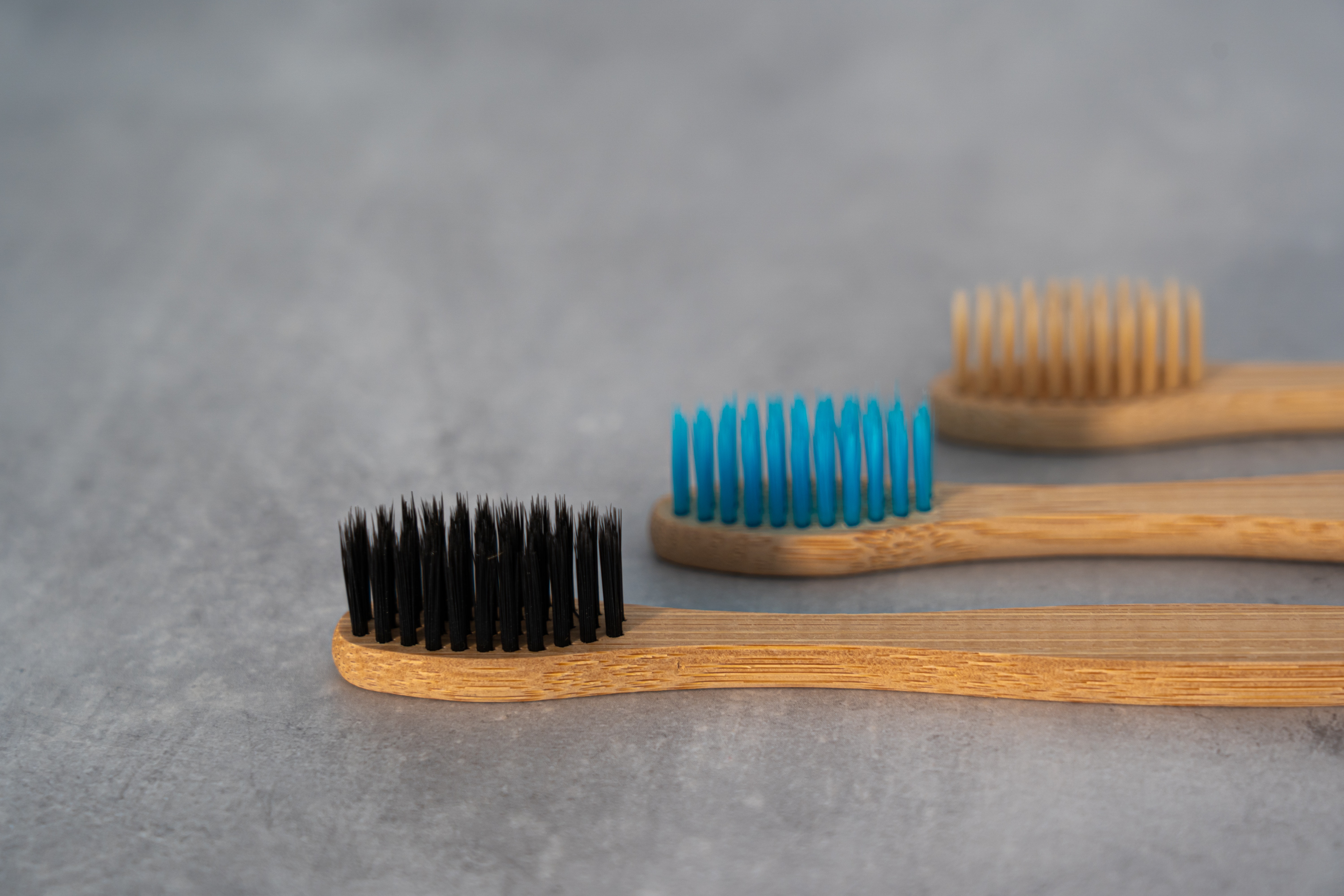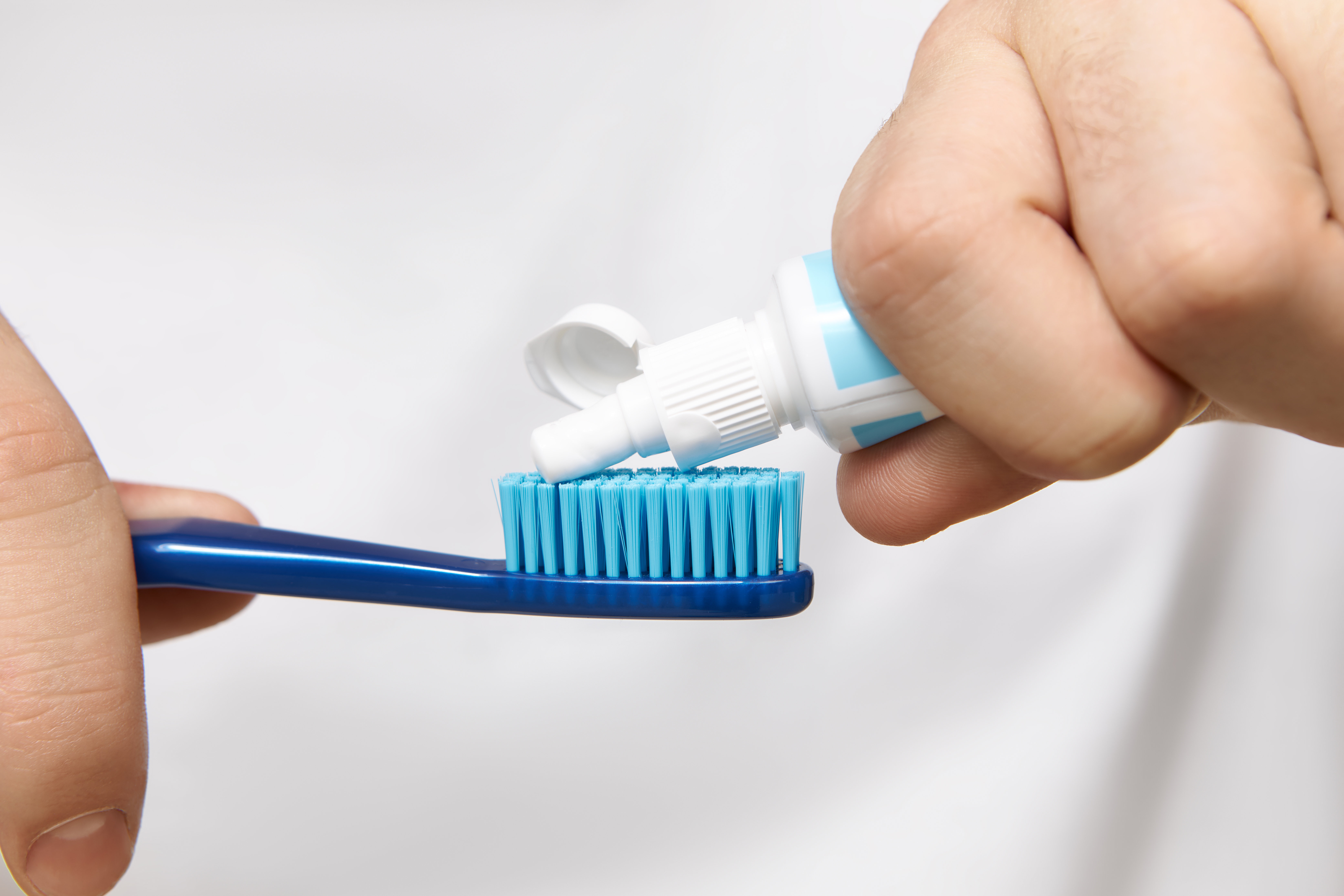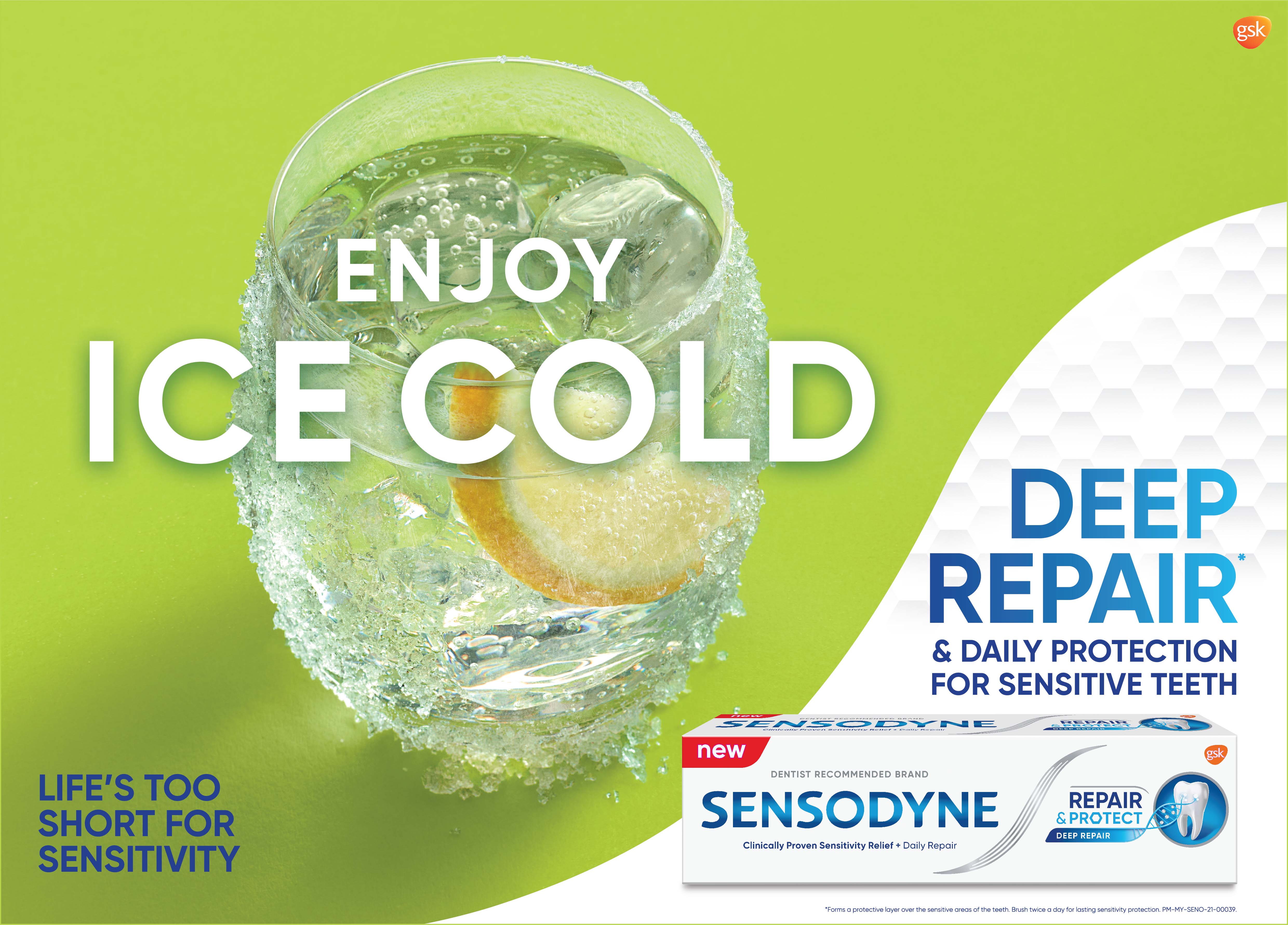Study Reveals 7 In 10 M'sians Suffer From Tooth Sensitivity. Here's How To Manage It
While it can be bothersome, there are ways to alleviate that feeling of discomfort.
Have you ever felt a sudden, sharp sensation in your teeth whilst indulging in your favourite food?
If you've ever experienced this discomfort, then you'll know that tooth sensitivity can be a real bother. Whether it be snacking on bak kwa, or chowing down on yee sang with your family during Chinese New Year, this dental problem prevents us from enjoying the simple pleasures in life.
According to a recent study conducted by GlaxoSmithKline (GSK) Consumer Healthcare this year, 7 out of 10 Malaysians suffer from tooth sensitivity*
But why does this happen? It occurs when the protective layer around your teeth, known as enamel, wears down, it exposes the softer, inner part of the tooth called dentin. This can be due to over-zealous brushing — which means brushing too vigorously or too often. Other causes of enamel loss are due to acid erosion from acidic foods and drinks**.
Another thing that leads to tooth sensitivity is gum recession, which is caused by gum tissue injuries from using a hard-bristled toothbrush.
In the Southeast Asia & Taiwan Research, they also found that only 39% of the respondents were aware of the problem, while the rest were not. So, how do you know if you have tooth sensitivity?
*GlaxoSmithKline (GSK). Sensodyne SEAT Quantitative Research – Malaysia Market Session. September 2021.
**Sensodyne (MY). What is enamel wear. Retrieved from link.
While it can range from a mild twinge to considerable discomfort, there are a few tell-tale signs of tooth sensitivity
Here's what can trigger sensitive teeth:
- Eating hot or cold food
- Drinking hot or cold beverages
- Eating sugary or sour foods
- Brushing or flossing
If you feel discomfort when performing these actions, you should consult your dentist for further diagnosis.
The good news is, tooth sensitivity is not a dangerous condition, and there are ways to avoid the discomfort.
Here's how you can manage sensitive teeth:
1. Let your hot food cool down before you take a bite
Yes we know, it's sooo tempting to terus dig in when your meal is served piping hot, kan? However, if you want to prevent that sharp sensation in your teeth from occurring, it's best to let it sit for a few minutes, at least until it's reached warm temperature.
2. If you love eating cold desserts like ice cream, lick instead of biting down on them
This goes for all you popsicle-lovers out there too. By eating these cold desserts differently, it will be much easier for you to satisfy your sweet tooth — all while avoiding any direct contact with your teeth, of course. ;)
3. Avoid brushing for at least half an hour after eating acidic foods
If you've been brushing your teeth immediately after every meal, don't! You may be doing more harm than good, especially if you consume acidic food or drinks on a regular basis. Your tooth enamel is at its softest after a meal, which makes it more vulnerable to eroding.
4. Speak to your dentist about other options to tone down the sensitivity
When in doubt, you should always check in with your dentist regarding any discomfort you are experiencing. It is important to know that you cannot diagnose yourself with tooth sensitivity, and a dentist can tell you if there is another issue causing your teeth to be sensitive, such as tooth decay or fractured teeth. In any case, they are trained to help you through this condition.
5. Use a soft-bristled or electric toothbrush when practicing good oral care
You know the rules, brushing your teeth twice a day, plus flossing helps keep your oral hygiene in tip-top condition. When you use a soft-bristled brush or electronic brush, remember to not apply too much pressure as you clean your teeth. The last thing you want is to damage your tooth enamel or gums.
6. Use toothpaste that is specifically made for sensitive teeth
More often than not, these types of toothpastes contain active ingredients to protect against tooth sensitivity. They may even provide relief when you are experiencing discomfort due to sensitive teeth.
If you're looking for a suitable toothpaste for your sensitive teeth, Sensodyne has released a new toothpaste that is clinically proven for sensitivity relief and deep repair***!
Known as Sensodyne Repair and Protect Deep Repair, it contains sodium fluoride to help strengthen enamel and protect teeth. By brushing twice a day, it provides an effective lasting relief from those twinges of discomfort caused by tooth sensitivity.
It is also specially formulated with NovaMin® technology, which helps build a reparative layer over the vulnerable areas of your teeth, such as dentin, and helps protect them from that sharp sensation****.
***Brush twice a day for lasting sensitivity protection.
****Forms a protective layer over the sensitive areas of sensitive teeth.
While tooth sensitivity isn't fun, there are many ways you can cope with the discomfort. Find out more about Sensodyne Repair and Protect Deep Repair at their website.
The information provided is for educational and communication purposes only and it should not be construed as personal medical advice. Information published in this article is not intended to replace, supplant or augment a consultation with a health professional regarding the reader's own medical care.
PM-MY-SENO-22-00013








